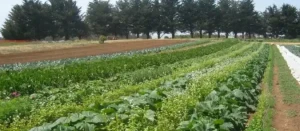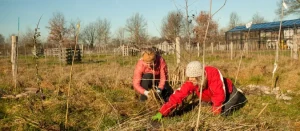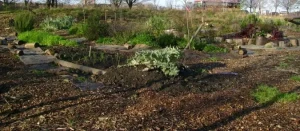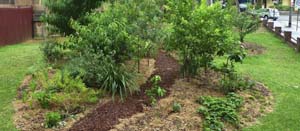SEARCH RESULTS > ARTICLES > challenges
As gardeners, we are stewards of the land, nurturing and coaxing life from soil, sun, and water. In our pursuit of abundant harvests and flourishing landscapes, we often seek methods that not only yield bountiful crops but also sustain the delicate balance of our ecosystems. One such approach that has gained significant attention and acclaim is agroecology. Learn More
In the face of escalating climate change and environmental degradation, the urgency to adopt sustainable practices has never been more critical. Permaculture, a design system rooted in principles of sustainability, offers a promising pathway towards mitigating the adverse effects of climate change (people and companies destroying nature) and restoring ecological balance. Learn More
The no-dig method, also known as no-till gardening, is a sustainable and organic approach to cultivating vegetables without disturbing the soil structure. This gardening technique has gained popularity among gardeners due to its numerous benefits for soil health, plant growth, and overall garden productivity. Unlike traditional gardening methods that involve tilling, digging, and turning the soil, the no-dig method emphasizes minimal soil disturbance. Instead of breaking up the soil, gardeners layer organic materials on top of the ground to create nutrient-rich soil beds where plants can thrive. By implementing the no-dig method, gardeners can improve soil structure, enhance soil fertility, and promote beneficial soil organisms such as earthworms and microorganisms. Additionally, this approach helps to conserve water, reduce weed growth, and minimize soil erosion. Learn More
Electroculture gardening, an age-old practice gaining renewed attention, involves the application of electrical stimulation to enhance plant growth, health, and productivity. This innovative technique harnesses the power of electrical fields to optimize soil conditions and promote vibrant, resilient plants. Learn More
Gardening is not just about growing beautiful flowers or tasty vegetables; it's about creating a sustainable and harmonious ecosystem. Regenerative gardening practices aim to restore and enhance the health of the environment, soil, and biodiversity. In this article, we will explore various regenerative gardening techniques that empower gardeners to contribute positively to the planet. Learn More
In the quiet depths of garden soil, a hidden symphony unfolds as plants engage in intricate relationships with microorganisms. Beyond the visible blooms and verdant foliage lies a complex network of interactions that profoundly shape the health and fertility of the soil. In this exploration, we delve into the nuanced world of plant-microbe relationships and their transformative impact on garden soil. Learn More
As urbanization continues to rise, creating sustainable gardens in small spaces has become a crucial aspect of promoting eco-friendly living. Urban permaculture, a design approach that mimics natural ecosystems, offers innovative solutions for cultivating thriving gardens in urban environments. Learn More
For gardening enthusiasts, a garden is more than just a collection of plants; it's a living, breathing extension of your home. Cultivating a relationship with your garden goes beyond the routine tasks of watering and weeding. It involves understanding the needs of your plants, appreciating the changing seasons, and creating a harmonious space where both you and your plants can thrive. Learn More







